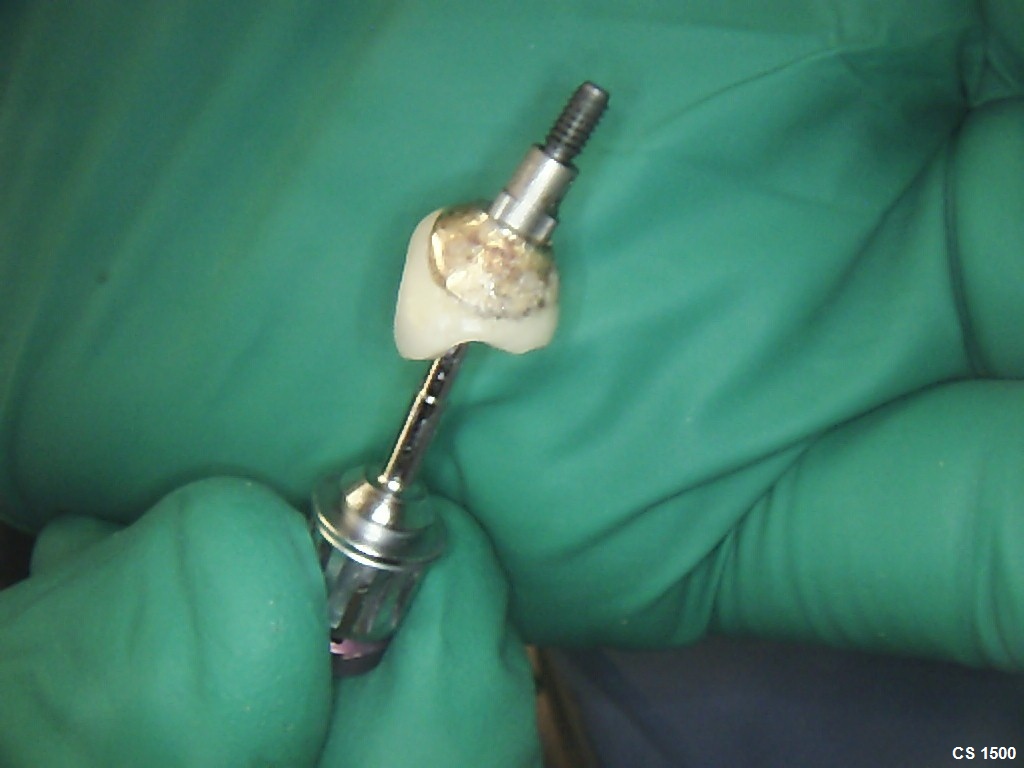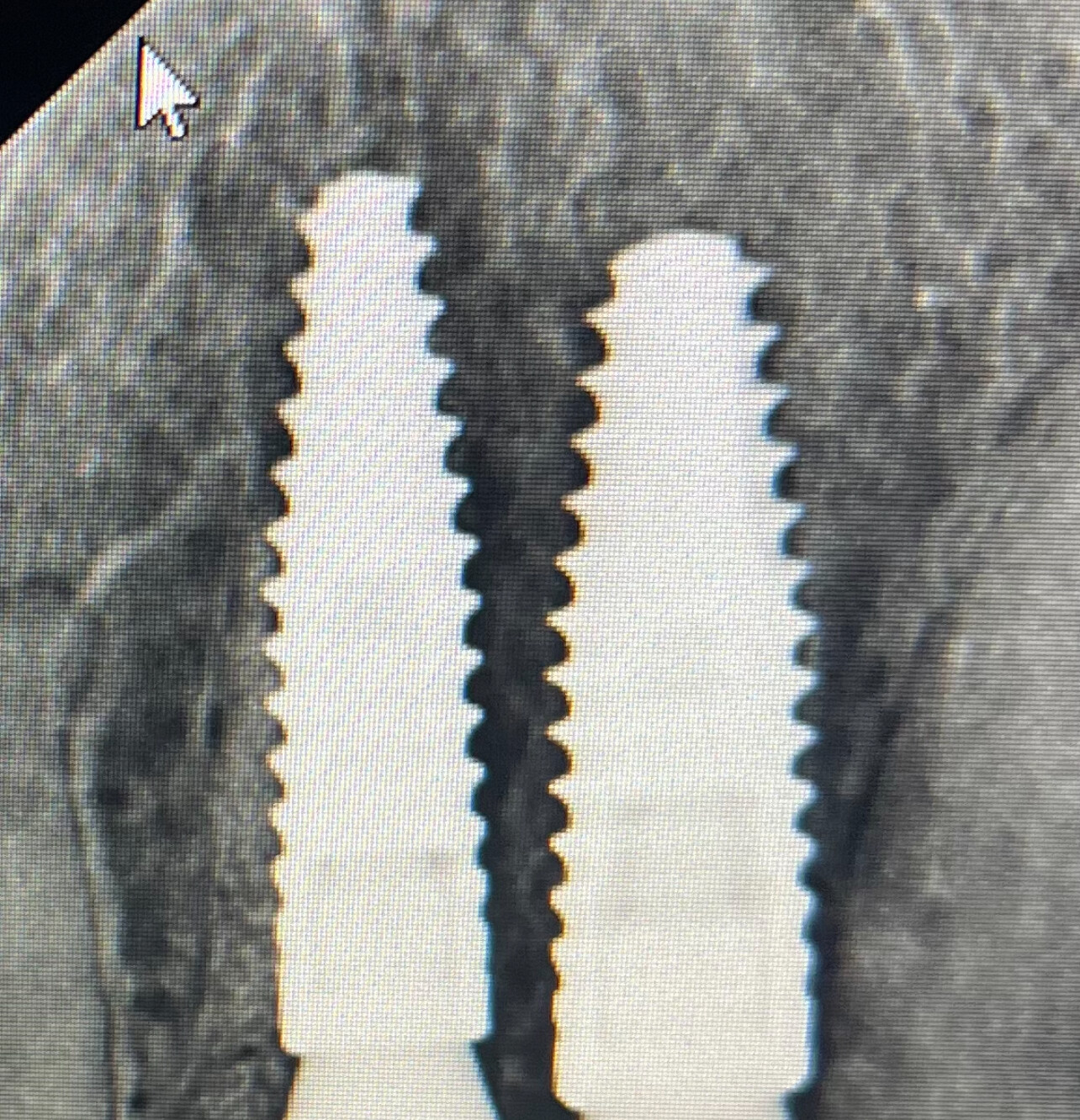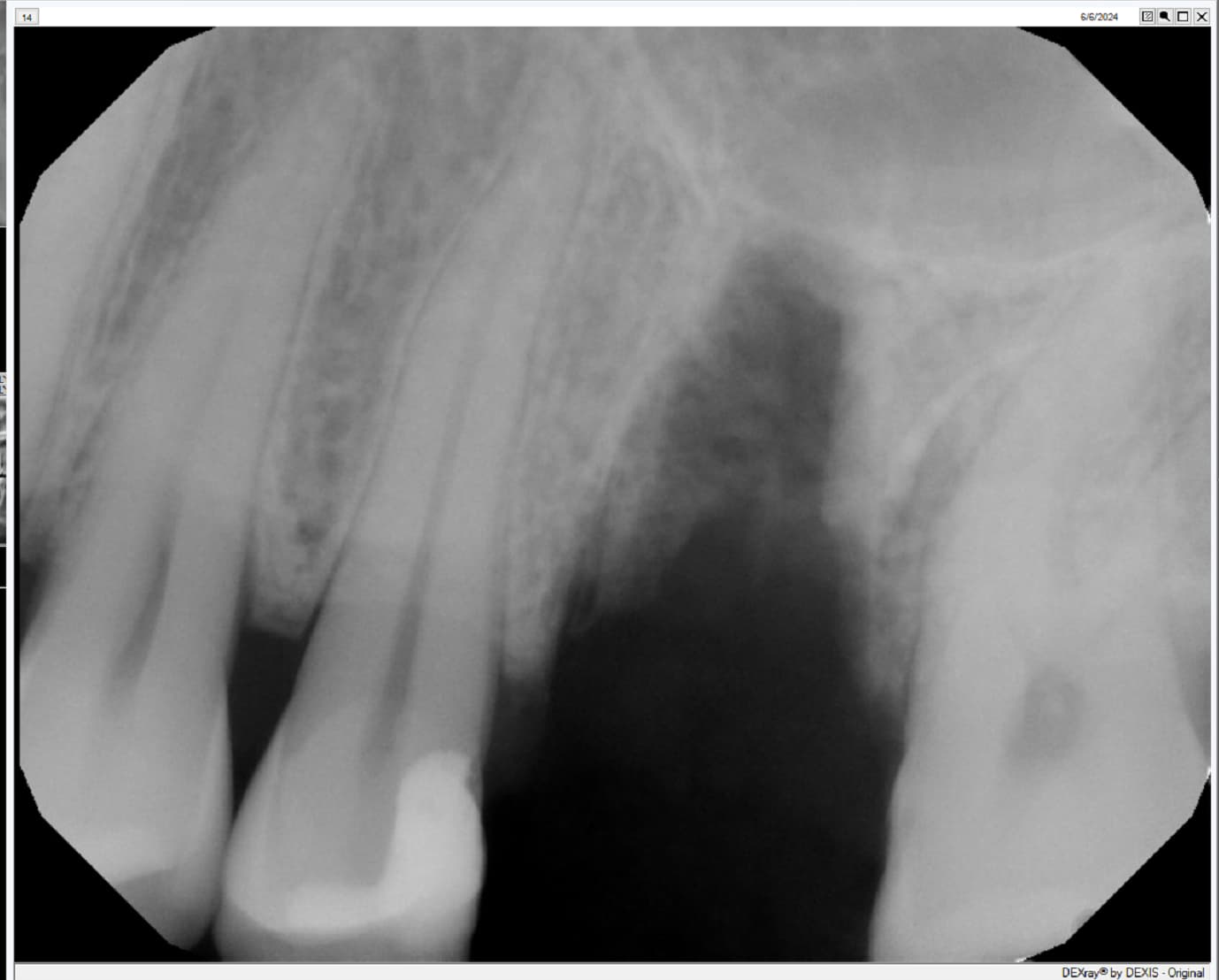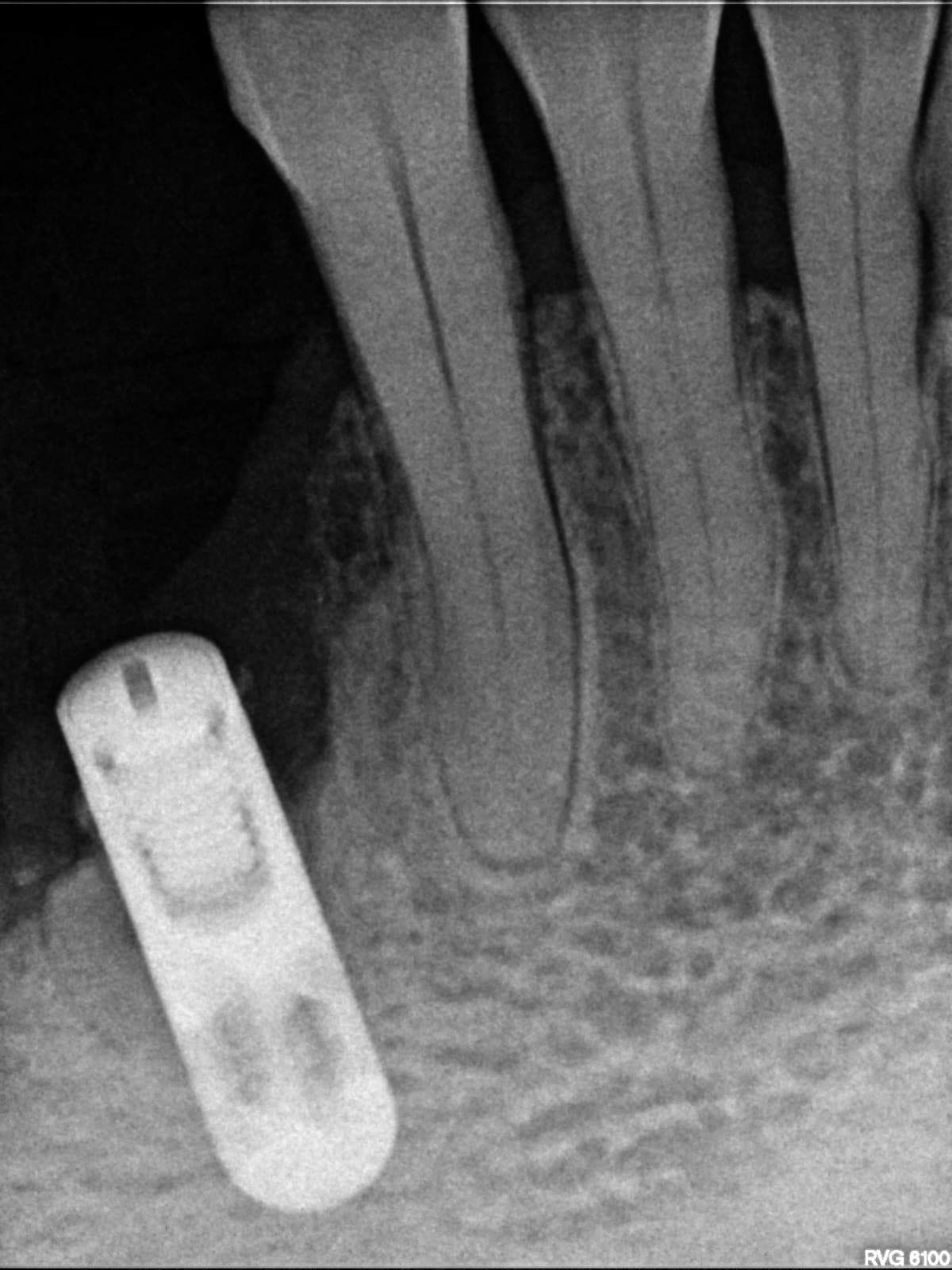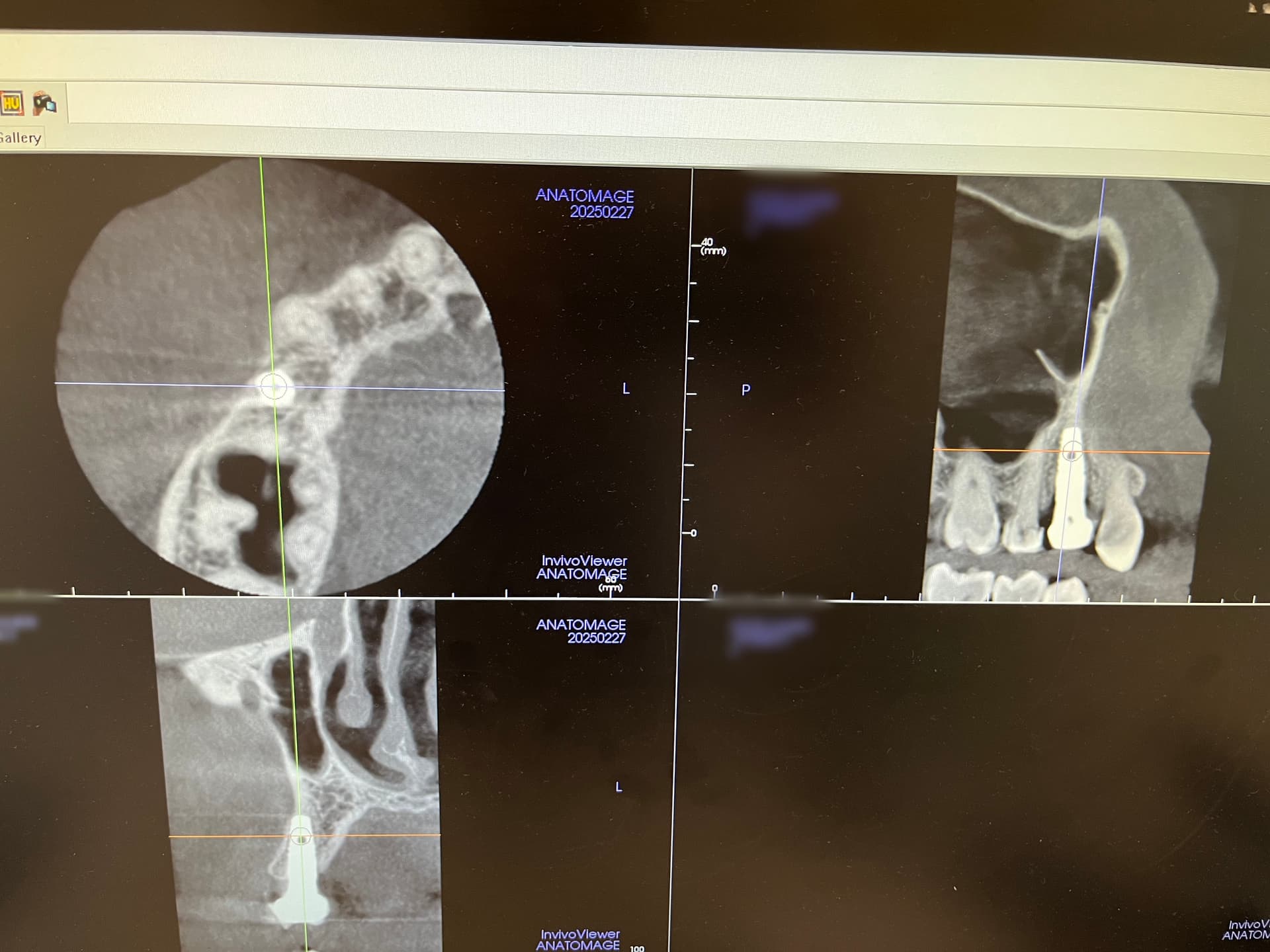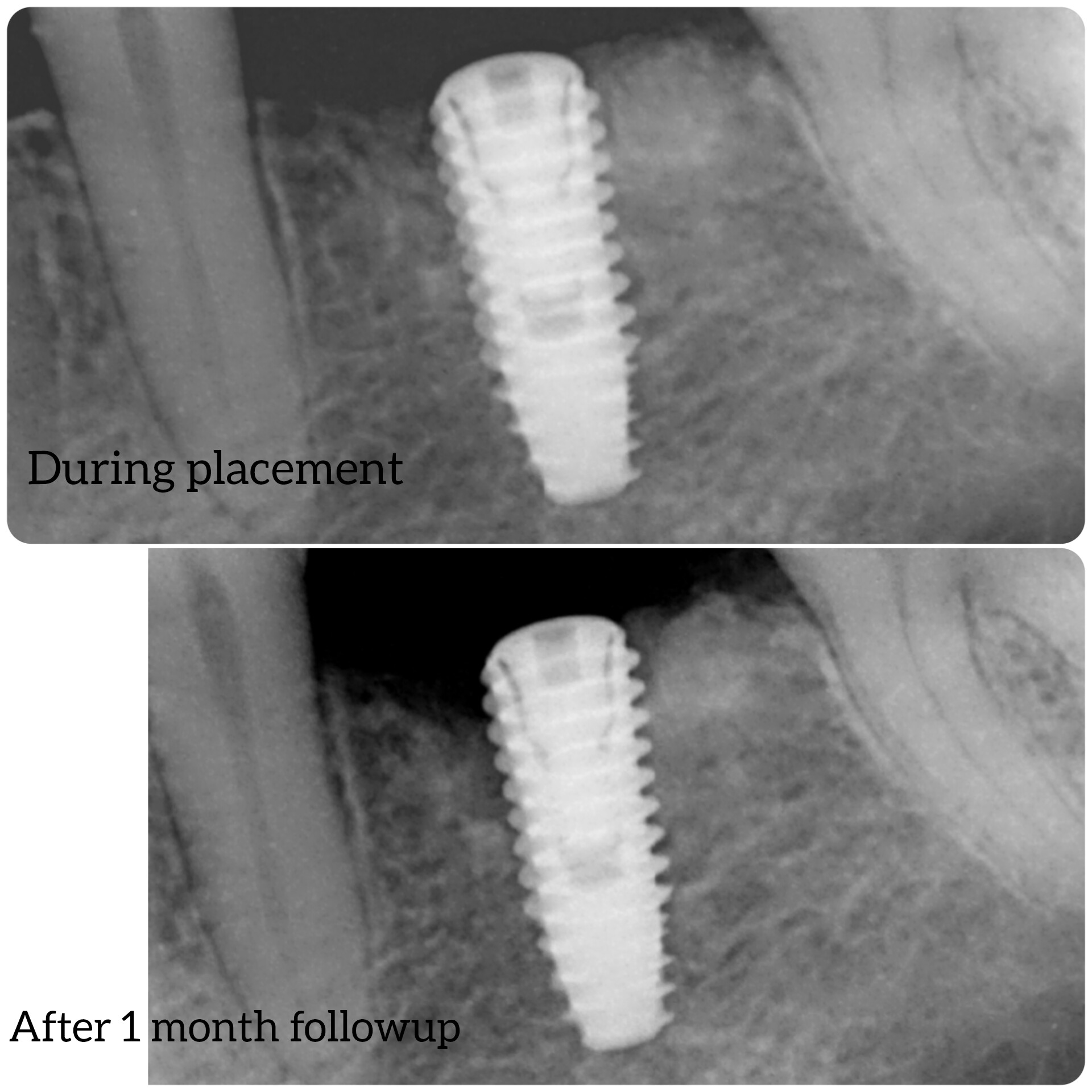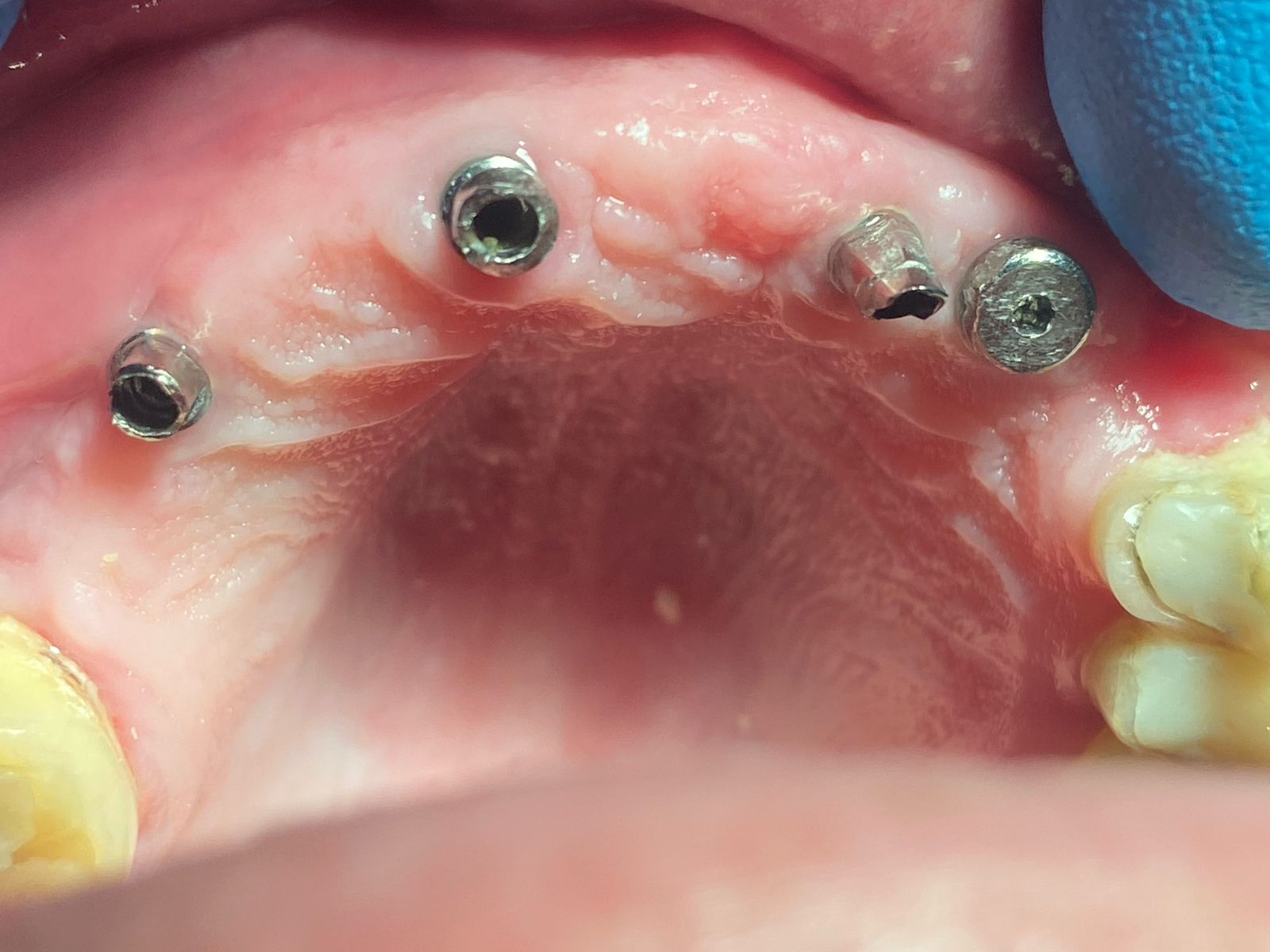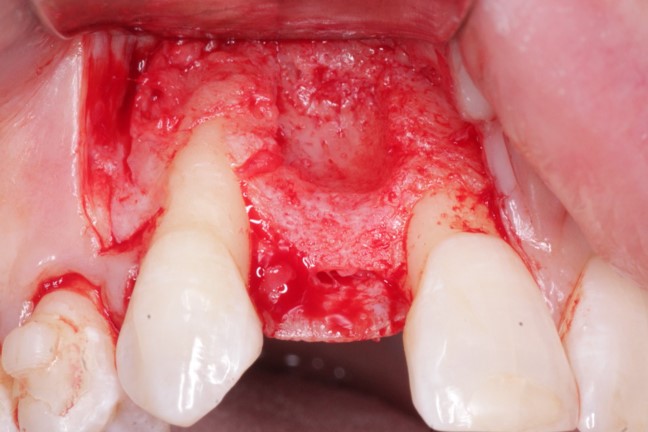To implant or not to implant?
My patient is a 73 year old caucasian male with a history of chronic obstructive pulmonary disease and high blood pressure. Recently he was referred by his primary care physician to a hematologist because of feelings of fatigue, a low white blood cell count and metabolic syndrome consistent with pre-diabetes. His most recent Complete Blood Count was normal except for his white blood count which was 3.8 (cf. norm 4.0-11.0) and his platelets 131 (cf. norm 150-450). He presented with coronal fracture #4 and carious #2 and #5 [maxillary right second premolar, second molar, first premolar; 15, 17, 14]. Patient is motivated to do surgery and even inquired about taking all teeth out and restoring with implant supported restoration. I have spoken with the hematologist and he states it is safe to extract teeth and place implants. My concern is not so much performing the surgery but whether this is the best treatment for the patient. My question is has anyone out there come across this type of situation and how would you manage this patient?
 pa of site
pa of site palatal view
palatal view frontal view
frontal view










